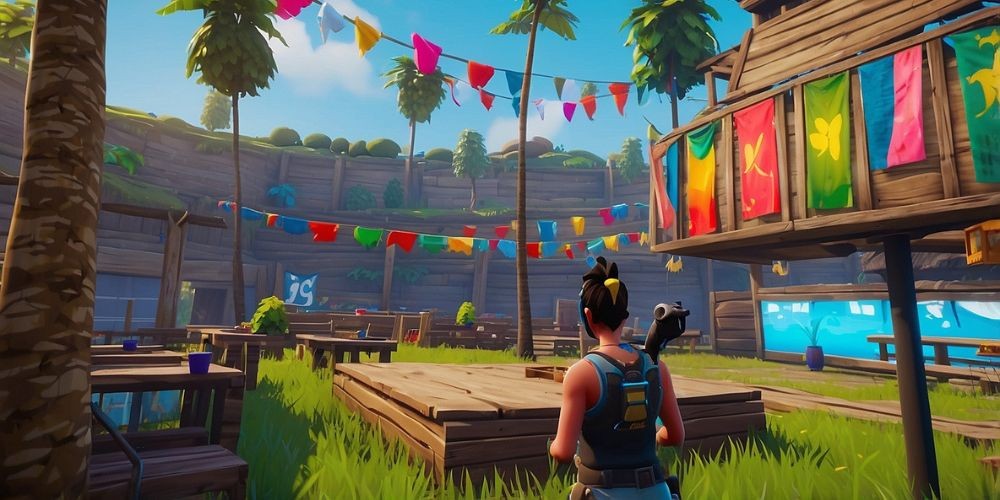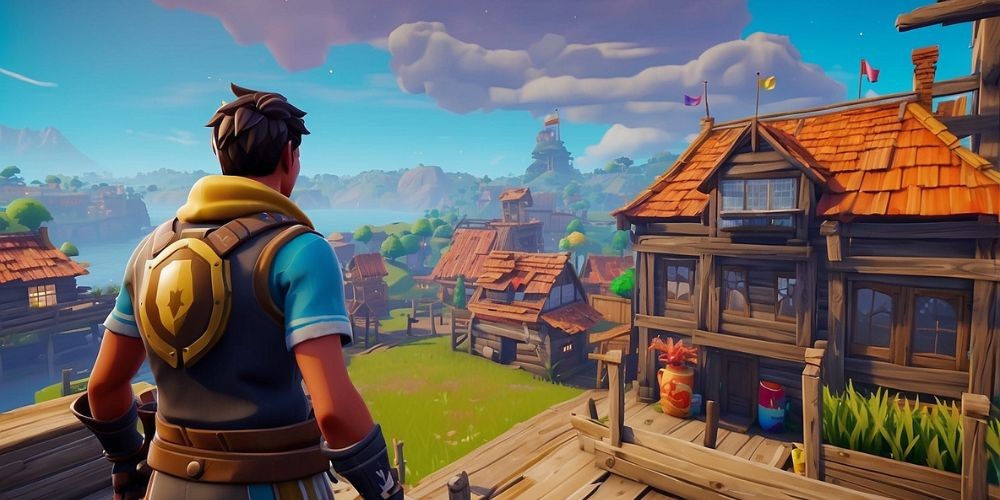Navigating the World of Fortnite Esports: Achievements and Emerging Hurdles
- Oct 21, 2024
- 840

The realm of Fortnite, championed by Epic Games, has redefined gaming norms, capturing players and enthusiasts alike with its unique Battle Royale offering. With an astounding rise that has generated billions and a remarkable player base, the game has not only become a mainstream form of entertainment but also a cornerstone of esports. However, beneath this shimmering façade lies a competitive ecosystem grappling with distinct challenges. These issues pose crucial questions about its sustainability, with severe implications for players and organizations dedicated to mastering the game.
Unraveling Success: The Rise of a Gaming Phenomenon
Fortnite’s journey to becoming a gaming juggernaut is nothing short of exemplary. The game's blend of construction mechanics with classic combat elements introduced a novel environment, engaging players in new strategic dimensions.

- Global Appeal: The game broke language and cultural barriers, making its mark on global platforms with over 80 million monthly players.
- Economic Leap: Within its formative years, Fortnite brought in a jaw-dropping $9 billion, showcasing the potential of multimedia expansion beyond traditional gaming avenues.
- Pop Culture Influence: Fortnite’s embrace of popular trends has solidified its position within both gaming and mainstream culture. Iconic in-game events featuring prominent artists and sports figures blurred the lines between gaming and entertainment.
Despite these spectacular achievements, maintaining such momentum in the competitive esports scene demands an intricate balance of innovation and stability.
Transitioning Challenges: The Struggles of Competitive Balance
The strength of Fortnite's competitive scene has been tested as esports organizations and players face significant headwinds. The very principles that democratized access to the game also led to structural inconsistencies that are now proving challenging:

- Dynamic Meta: Constant updates and gameplay changes have kept Fortnite fresh but disrupted the competitive balance. Players and teams are perpetually adjusting strategies, which forces even the most skilled to adapt swiftly or risk falling behind.
- Open Access Model: While the open competition principle has democratized success, it has simultaneously diminished stable support systems for professional players.
Organizational Departure: A Reflection of Unmet Needs
The decision by leading esports teams to exit the Fortnite competitive scene underscores a powerful conundrum: investment without returns. High-profile organizations like Sentinels and Team Vitality were trailblazers who set high standards of innovation and competition. Yet, their withdrawal marks a critical junction wherein:
- Lack of Collaborative Opportunities: Epic Games has fallen short of creating inroads for comprehensive esports partnerships, stalling mutual growth.
- Inadequate Revenue Models: Teams are struggling with limited prize pools and income streams as revenues from sponsorships and merchandise lag behind other esports domains.
- Communication Gaps: The absence of effective dialogue between Epic Games and the competitive community frustrates necessary feedback loops, crucial for proactive development solutions.

Their exit acts as a bellwether, reflecting broader challenges across the esports ecosystem, with implications for enterprises and individual players alike.
Players On the Edge: Navigating New Revenue Avenues
With the void left by withdrawing organizations, individual players must rethink their paths in the competitive ecosystem. A paradigm shift is necessary, where players adapt to the freelance nature of income generation:
- Content Creation: By leveraging platforms like YouTube and Twitch, players can exploit their gaming prowess to attract audiences and, by extension, advertisers and sponsors.
- Merchandise Initiatives: Direct-to-fan sales of bespoke Fortnite-themed merchandise offer players another income stream whilst expanding their brand.
- Coaching Services: Offering expertise through coaching can allow players to provide value while monetizing their unique skills.

As players diversify and formalize these strategies, it opens up new career paths within gaming beyond just competitive play.
Epic Games at a Crossroads: The Need for Active Engagement
Epic Games finds itself at an essential juncture where its actions can either preserve the longevity of competitive Fortnite or lead to an inevitable attrition. Proactive solutions are imperative:
- Enhanced Support for Esports Ventures: Establishing sustainable ecosystems where collaboration becomes feasible, encouraging stable team and player investments.
- Consistency in Meta: While innovation should remain, ensuring consistency can enable reliable strategy planning and skill accumulation without constant change pressures.
- Improved Revenue Channels: Strengthening income sources through enhanced sponsorship deals, advertising innovations, and larger prize pools can inject necessary sustenance for stakeholders.
Given the profound influence of the game, these steps are pivotal not just for esports' vigor but for modeling healthy and enduring digital ecosystems.

Conclusion: Forging a Sustainable Future
While Fortnite’s competitive scene navigates choppy seas, the path forward is not immutable. Collective engagement between Epic Games, esports communities, and players themselves can drive positive change.
The dialogue towards sustainability must pivot from short-term profits to long-term community vitality, transforming today's challenges into opportunities for future growth, ensuring that Fortnite remains not just a game but a thriving competitive universe.
As Fortnite aspires to align its immediate challenges with enduring successes, vested stakeholders must collaborate to reinvent a unified and sustainable competitive framework — a step to herald an evolving chapter in its storied legacy.